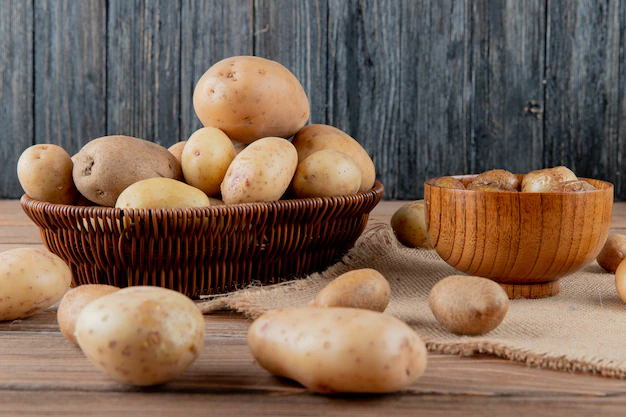Potatoes: Health Myths and Facts

Potatoes are a staple food in many households around the world, but there are some misconceptions about their nutritional value. Here are some common myths and facts about potatoes.
Myth: Potatoes are high in calories and should be avoided if you are trying to lose weight.
Fact: Potatoes are relatively low in calories, with one medium-sized potato containing about 110 calories. They are also a good source of fiber, which can help you feel full and satisfied. However, it’s important to note that the way you prepare potatoes can affect their calorie content. Fried potatoes, for example, can be much higher in calories than boiled or baked potatoes.
Myth: Potatoes are not a good source of nutrients.
Fact: Potatoes are actually a good source of several key nutrients, including potassium, vitamin C, vitamin B6, and iron. One medium-sized potato contains about 20% of the recommended daily intake of potassium, which is important for maintaining healthy blood pressure. Vitamin C is important for a healthy immune system and vitamin B6 is important for brain function. Iron is essential for healthy red blood cells.
Myth: Potatoes are high in carbohydrates and should be avoided if you are following a low-carbohydrate diet.
Fact: Potatoes are a starchy vegetable and do contain carbohydrates, but they can still be included in a healthy diet. One medium-sized potato contains about 26 grams of carbohydrates, which is about the same amount as a slice of whole wheat bread. If you are following a low-carbohydrate diet, you can still eat potatoes in moderation as part of a balanced diet.
Myth: Potatoes are bad for your blood sugar.
Fact: While potatoes are a starchy vegetable and do contain carbohydrates, they are not necessarily bad for your blood sugar. The glycemic index (GI) of potatoes can vary depending on the type of potato and how it is prepared. Generally speaking, boiled or baked potatoes have a lower GI than fried potatoes. If you have diabetes or are concerned about your blood sugar, it’s important to work with a healthcare professional to develop an individualized nutrition plan.
In summary, potatoes can be a healthy and nutritious addition to your diet when prepared in a healthy way. They are a good source of several key nutrients and can be included in a balanced diet, even if you are watching your weight or following a low-carbohydrate diet. However, it’s important to be mindful of how you prepare potatoes, as fried potatoes can be high in calories and salt.
